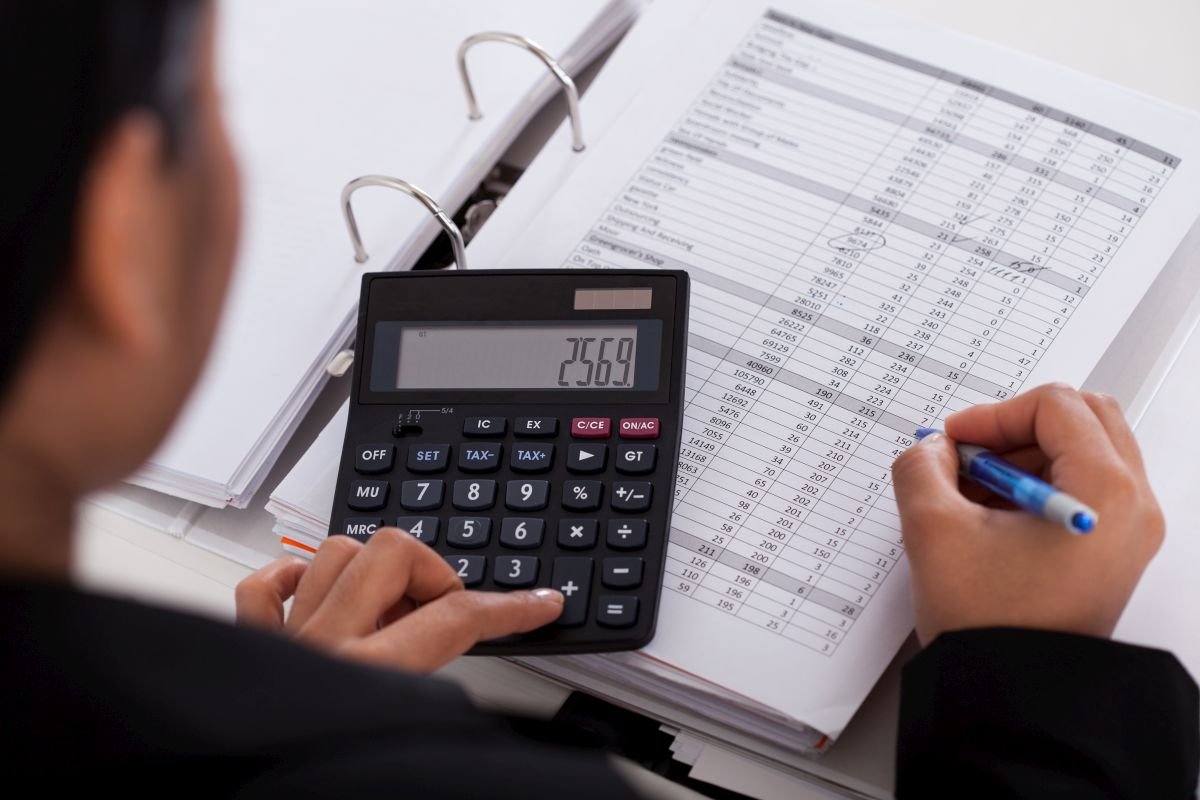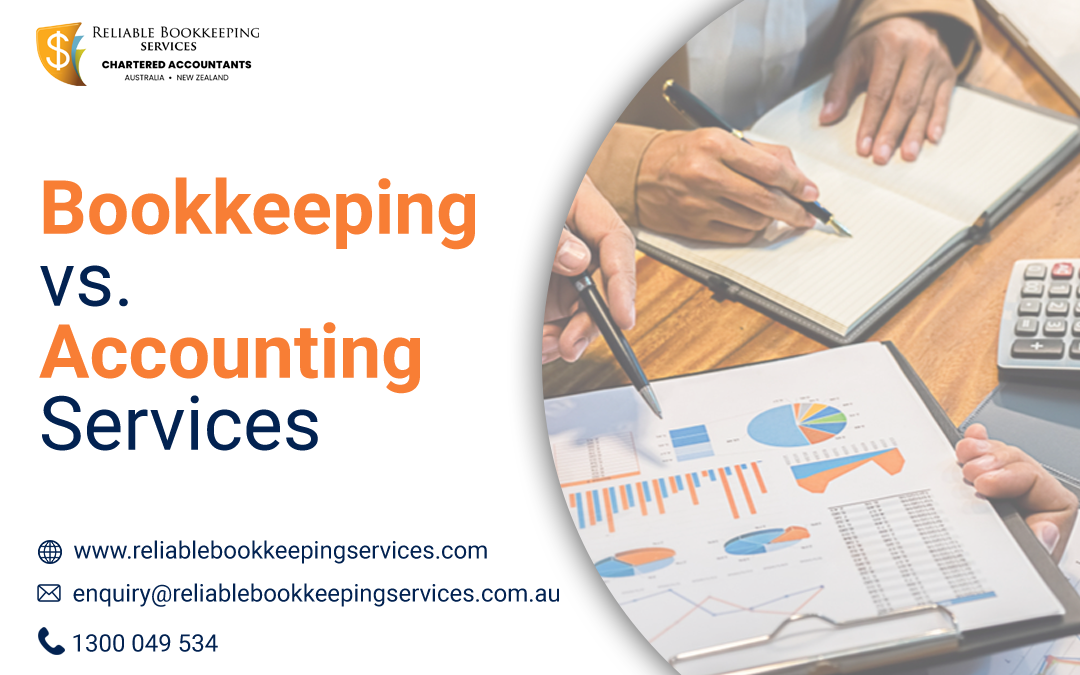You may have trouble answering this question, and rightly so, unless you are an accountant or a bookkeeper. Both jobs are somewhat similar on the surface: Bookkeepers and accountants both use financial data to help you to handle your financial activities.
Some bookkeepers for small businesses also handle accounting tasks due to resource restrictions. There is also a blurring of roles. The creation of bookkeeper software to create financial records, a task that is traditionally reserved for accountants, is additional to confusion.
However, although the workplaces are evidently similar and structured, bookkeeping Services and accounting are different. At a high level, financial transactions are documented by bookkeepers and accountants evaluate and interpret the data. That is too simplistic, of course.

So, What Is Bookkeeping?
The first significant stage in the accounting process is bookkeeping. Consider athletes who start track transmission. Think of athletes. By recording financial transactions, they lay the groundwork for accountants. When the first step of the competition is complete, they pass to the accountant to complete the race the batons — the financial details in the booklets and journals.
This analogy simply illustrates the differences in roles. (It is not to say that accountants can or will not record transactions – they can and will often do so).
With transactions recorded, bookkeepers track your finances to see how much money your company enters and leaves at a glance. You should be confident that they’ll hold you straight and narrow because they’re tax compliant.

But what are some bookkeepers doing precisely? Six joint bookkeeping activities are present here:
- Service earnings and expenses such as rent, supply, and office equipment are reported.
- Payroll management, although not a core bookkeeping feature.
- The creation and payment of invoices depend on your specific arrangement with them.
- To see whether your books match balances against bank transactions. If not, they make changes to these inconsistencies and build bank reconciliation statements.
- Tracking the accounts payable (the funds you owe) and the accounts receivable (the money you owe). Bookkeepers maintain records on all payments and due dates and track late payers. They will also ensure that you don’t pay double for your accounts on time. The sums are reported as business expenses in the headline as soon as the payment is made.
- Holding the central accounting paper, which holds all the financial transactions. The general directory uses a two-way accounting system, meaning there is a corresponding credit on a separate account for any debit.
The bookkeeper is going to:
- Post your journal with related credits before the move to the general ledger.
- Ensure a balance of debits and credits
- This records all revenues and expenses
What Is Accounting?
The accountant now uses the reported documents to evaluate, assess, and report on a company’s financial health. Since they have more comprehensive details on corporate decision-making, you do not want to employ an accountant just to document revenue and expenditures. You would pay more for the same service that a Bookkeeper might do for less, and then underuse the skills of the accountant. Here are four roles performed by an accountant:
- Preparing financial statements that will help you obtain an overview and evaluate the company’s financial health, including:
- Balance sheets: a snapshot at one point of your financial position, determined by using this formulation: Assets = Equity – Liabilities
- Revenue statements: report over a period of time all your revenue and expenditures.
- Cash flow statement: Cash flow reports for a certain period of time
- Analysis and adjustments to journals and leader entries, e.g. accountants identify expenses not previously recorded.
- Provide Tax Advice and complete and file tax declarations
- Provide financial Advice and understand the effect of your financial choices
So, Bookkeeping vs. Accounting:
In this case, you can probably determine the differences and similarities. But for clarification, here is a short overview plus a range of important variations in credentials.
Similarity:
- Bookkeepers and accountants use financial details.
- They share the common objective of better financial health
- Its role in small businesses sometimes overlaps with the advent of bookkeeping software that can compile financial statements
- Both need fundamental accounting skills to be an employee
- Both comply with taxes
Difference
| BOOKKEEPING | ACCOUNTING | |
|---|---|---|
| Definition | Bookkeeping mainly concerns financial transactions, measurement, and recording | Accounting is the process for the summarizing, interpretation, and communication of financial transactions classified in the account. |
| Objective | The object of bookkeeping is to maintain properly and systematically the record of all financial transactions | The aim of the accounts is to assess the financial situation and to provide the relevant authorities with information |
| Decision Making | Management can not determine on the basis of bookkeeping information | The management can make important business decisions based on the data generated by the accountants |
| Financial Statements | As part of this process, financial statements are not prepare | During the accounting process, financial statements are prepared |
| Analysis | No analysis is required for the bookkeeping process | Accounting uses bookkeeping knowledge to evaluate, measure, and record the data |
| Skills Required | No special skills are required for bookkeeping | Because of its analysis and complex nature, accounting requires special skills |
| Bookkeepers and Accountants: | Bookkeepers must be accurate and knowledgeable in their work on financial matters. The job of bookkeepers is normally supervised by an accountant | Accountants with sufficient experience and training will get a Certified Public Accountant ( CPA) title |
Summary
Despite similarities and blurred roles, accounts and bookkeeping are two vastly different professions. This post helped, hopefully, clarify these differences and similarities so that confusion could be removed.
Now that it is time to decide which one is the right one for your firm because you understand how bookkeeping and accounting differ. While this is personal and depends on your needs and your business objectives, a post describes why a bookkeeper Melbourne can be hired.
















